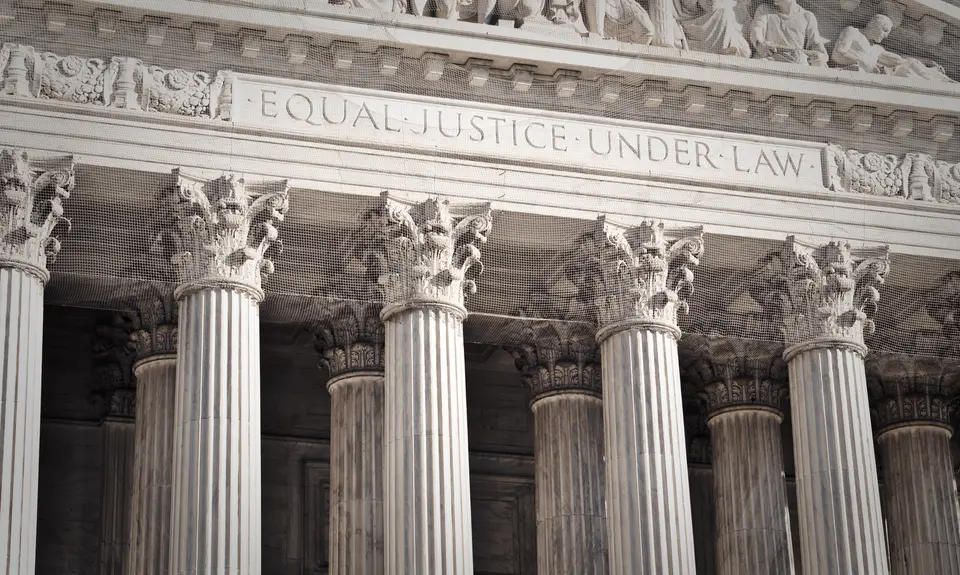With congressional majorities unwilling to challenge Donald Trump’s autocratic moves, the federal courts’ role in protecting our freedom, our health, and our way of life is more important than ever. And no court has as much power as the Supreme Court.
As of June 12, the Supreme Court has yet to decide about a third of the cases in which it has heard oral arguments this term. The justices usually issue all of their decisions by late June or early July. Below are some of the argued cases still remaining, along with pending “shadow docket” cases expected to be addressed without full briefing or oral arguments. Some of them relate directly to Trump’s assault on our country’s democracy. But all of them are important.
Weakening Courts’ Ability to Check Trump
Trump v. CASA is one of three consolidated cases stemming from Trump’s lawless effort to eliminate the Fourteenth Amendment’s protection of birthright citizenship. The case is technically not about that. Instead, it’s about whether and when federal district courts can issue preliminary orders blocking a defendant from carrying out an illegal action, not just against the plaintiffs in the case, but against any individual anywhere in the country. This is an immensely important issue at a time when the judiciary is the only branch of the federal government enforcing checks and balances on a tyrannical Trump regime.
Dismantling the Department of Education (Shadow Docket)
McMahon v. New York involves Trump’s autocratic moves to eliminate the Department of Education without congressional approval, including the firing of a third of its employees. Massachusetts District Court Judge Myong Joun ordered the Education Department to reverse those actions and not take further ones, since the president doesn’t have the unilateral power to shutter the department. The Trump administration has asked the Supreme Court to put a hold on Judge Joun’s order while it pursues an appeal in the First Circuit.
Disappearing People to South Sudan Without Due Process (Shadow Docket)
Department of Homeland Security v. D.V.D. involves the Trump administration’s disappearing immigrants without due process to South Sudan (a country they are not from), where they may well be tortured. Massachusetts federal district judge Brian Murphy ordered the government not to send any undocumented immigrants to third-party countries without giving them fair notice and an opportunity to show that they may be tortured there. The Trump administration has already violated this order at least once. They are asking the Supreme Court to bar enforcement of Judge Murphy’s order while the case is further litigated.
Laws Targeting Trans People
In U.S. v. Skrmetti, the Court will decide the constitutionality of laws making it illegal to give transgender minors critically important gender-affirming care. The justices may also decide that laws harming transgender people don’t trigger heightened judicial scrutiny and are therefore presumed not to violate the Equal Protection Clause. Such a ruling would open the door to even more harmful anti-trans laws.
LGBTQ-Inclusive School Curriculum
Mahmoud v. Taylor involves efforts by parents to exempt their children from using school books acknowledging the existence and dignity of LGBTQ+ people. A group of parents with religiously-based opposition to such inclusion claimed that requiring their children to attend lessons including those books poses a substantial burden on their exercise of religion. A lower court ruled that simply being exposed to other ideas does not significantly burden religious freedom. A ruling for the parents in this case would both distort the meaning of the Free Exercise Clause and marginalize LGBTQ+ people.
Attacks on Planned Parenthood
Medina v. Planned Parenthood South Atlantic is part of the Far-Right’s crusade to destroy Planned Parenthood. States are supposed to let Medicaid recipients choose their own medical providers. But South Carolina has barred Planned Parenthood from receiving Medicaid funds. The Court will decide if patients denied their choice of provider have a right to sue. If the Supreme Court rules that they don’t, the impact on people’s health could be devastating.
Limiting Disability Rights
In Stanley v. Sanford, the justices will decide if people with disabilities can sue their former employers for discrimination concerning post-employment benefits. In this case, the Eleventh Circuit ruled that the American with Disabilities Act (ADA) only protects people currently holding or seeking a job with the employer. If the Supreme Court agrees, it would weaken this milestone civil rights law.
Weakening Black Voting Power
In Louisiana v. Callais, the Court is being asked to strike down the state’s compliance with the Voting Rights Act as an unconstitutional racial gerrymander. After the 2020 Census, the state adopted a congressional redistricting map with only one majority-Black district. Multiple courts found that this likely violated Section 2 of the Voting Rights Act by diluting the voting strength of Black voters. So Louisiana adopted a new map with two majority-Black districts. Now it’s being sued for impermissibly taking race into account in drawing congressional districts. If the Court majority agrees, it would be much harder for states to comply with their obligations under the Voting Rights Act.
